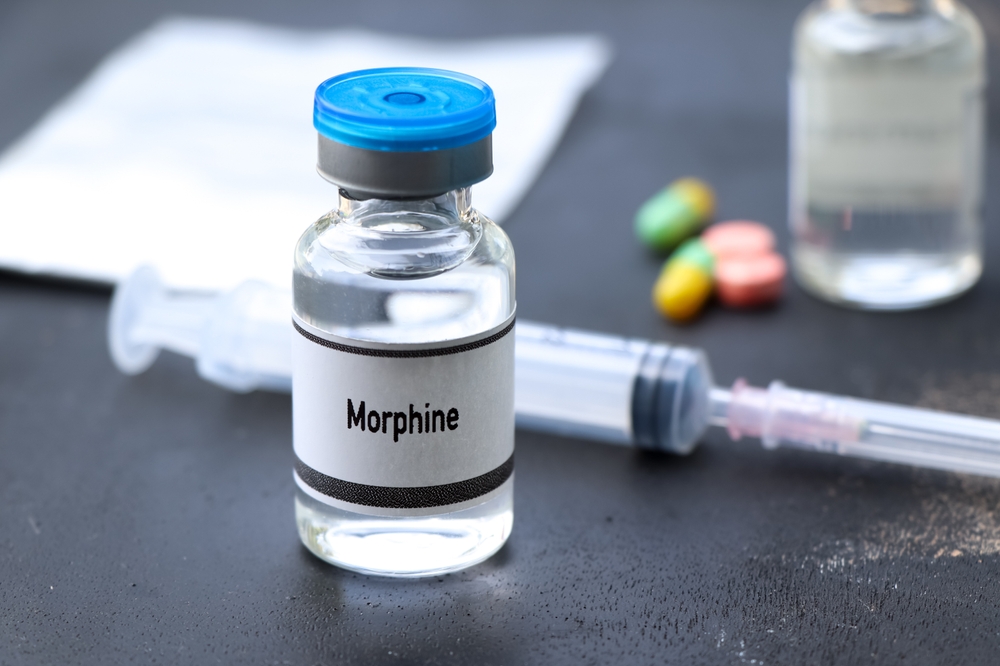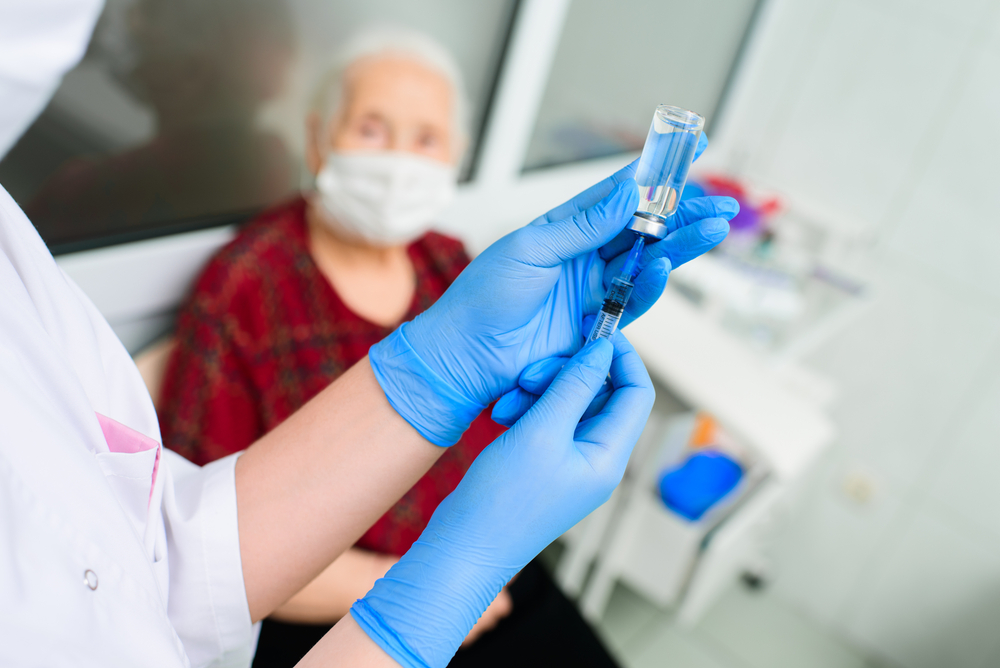Last Updated:
August 19th, 2025
Morphine Rehab Treatment | What to Expect
Morphine is a powerful painkiller that has been used for generations to manage severe pain after surgery or during long-term illnesses. But despite its medical benefits, morphine carries a hidden risk – it’s incredibly addictive. Morphine addiction often quietly begins after you’ve been discharged from the hospital and are still experiencing pain or craving relief. If you suddenly lose access to morphine, you might even find yourself desperate enough to turn to illegal opioids like heroin which can be even more dangerous. If you find yourself stuck relying on morphine, specialised morphine addiction treatment is crucial to safely get your life back under control.

What is morphine rehab?
Morphine rehab is a recovery programme that gives you a real chance to get your life back. It begins with morphine detox, where doctors help you get through withdrawal without putting your body under too much stress. If you have tried stopping before, you already know how hard those first few days and weeks can be; perhaps even relapsed due to the symptoms of withdrawal. Having a team there to get you through those early symptoms makes everything feel less scary and gives you the strength to keep going.
After detox, rehab therapy helps you figure out what has really been going on underneath it all. Maybe morphine started because of physical pain, but often there’s more to it as many addictions have roots like stress, heartbreak or just feeling like you can’t cope. This part of morphine rehab helps you understand those things and find new ways to deal with life so you’re not stuck reaching for morphine every time things get hard.
Heading back home after rehab can feel a bit shaky, especially if morphine is still easy to get or old habits start creeping back in. That’s why solid aftercare matters. A good morphine rehab centre won’t just send you on your way but will stick with you through check-ins, therapy sessions and support groups, so you’ve got backup when things get tough.
Struggling with an addiction? If you are ready to seek help, reach out to us today, and a member of our compassionate team will help you find the best option for starting your recovery journey.
Why is morphine rehab so important?
Morphine addiction can catch anyone off guard, and it’s easy to underestimate morphine’s risks because it is given in hospital, so it is often considered safe. But morphine quickly changes how your brain works, making you physically and emotionally dependent, and this makes it incredibly hard to stop using it alone.
One of the biggest hidden dangers is that when morphine becomes hard to get, people sometimes turn to illegal opioids like heroin out of desperation. This switch can make things dramatically worse, exposing you to dangerous unknown substances, overdose risks and serious legal consequences. Professional morphine rehab helps you safely avoid this dangerous path, giving you structured medical care, emotional support and lasting solutions for pain management without drugs.
Private inpatient morphine rehab vs. NHS outpatient morphine rehab
Choosing between inpatient and outpatient morphine rehab depends on your personal situation. Here’s a simple breakdown to help you see what might work best for you:
|
Inpatient morphine rehab |
Outpatient morphine rehab |
|
| Living circumstances | You will live full-time in a supportive, calm rehab centre. | You will live at home as usual, attending regular therapy sessions local to you. |
| Medical detox setup | As soon as you arrive at rehab, you will begin medically supervised onsite detox. | Detox is usually done off-site (like at a hospital or local clinic) so you may need to wait for a bed to become free. |
| Therapy setup | You will take part in daily therapy sessions as part of a comprehensive treatment programme. | You will attend regular therapy sessions, though how often a week depends on your schedule and session availability. |
| Day-to-day rehab | Inpatient morphine rehab is a structured and focused environment for recovery. | This is a more flexible option, allowing you to manage family, work and personally commitments. |
| Access and cost considerations | Usually only available privately in the UK with quicker access but higher costs. | Often NHS-funded and free but may involve waiting lists. |
What to expect in morphine rehab?
It’s completely okay if the idea of rehab makes you nervous because that first step is a big one. But once you’re through the door, you’ll find that rehab is not clinical or cold but is a place built for healing. You will have a safe space to rest and recover, and staff will be there to help, not judge.
Your days will be complete but in a good way. You will have medical support to keep things steady, followed by therapy to help you dig into what really led you here. One-on-one sessions let you open up at your own pace, while group sessions show you you’re not the only one who’s been through this. Together, they help you figure out healthier ways to handle pain, stress or whatever else makes morphine feel like the answer.
But recovery isn’t all serious, and a big part of healing is learning to enjoy life again in small, simple ways. Activities like art, yoga and meditation can all help calm your mind and give you a break from the heavier stuff. Every morphine rehab centre is a little different, so it’s worth doing some research and choosing a place where you feel relaxed and supported.

Therapies involved in morphine addiction treatment
The best morphine rehab programmes offer different types of therapy to support your recovery from every angle. Here are the main therapies that effective programmes should include:
Finding morphine addiction treatment near me
When you are ready to break free from morphine, Addiction Helper is here to make the process easy and stress-free. Our caring team will clearly explain all your treatment options, help you find trusted morphine rehab centres and answer any questions or worries you have. Contact us today to start your journey back to a healthier, morphine-free life.
Our compassionate team are ready and available to take your call, and guide you towards lasting the lasting addiction recovery you deserve.
Frequently Asked Questions
(Click here to see works cited)
- McClung, Colleen A. “The molecular mechanisms of morphine addiction.” PubMed, https://pubmed.ncbi.nlm.nih.gov/17139840/. Accessed 30 March 2025.
- UK-Rehab. “Treatment For Morphine Addiction | UK Rehab.” UK-Rehab, https://www.uk-rehab.com/treatment-rehab/morphine-addiction/. Accessed 30 March 2025.
- UK-Rehab. “Information on Opiates and Opiate Addiction | UK Rehab.” UK-Rehab, https://www.uk-rehab.com/opiate-addiction/. Accessed 30 March 2025.

